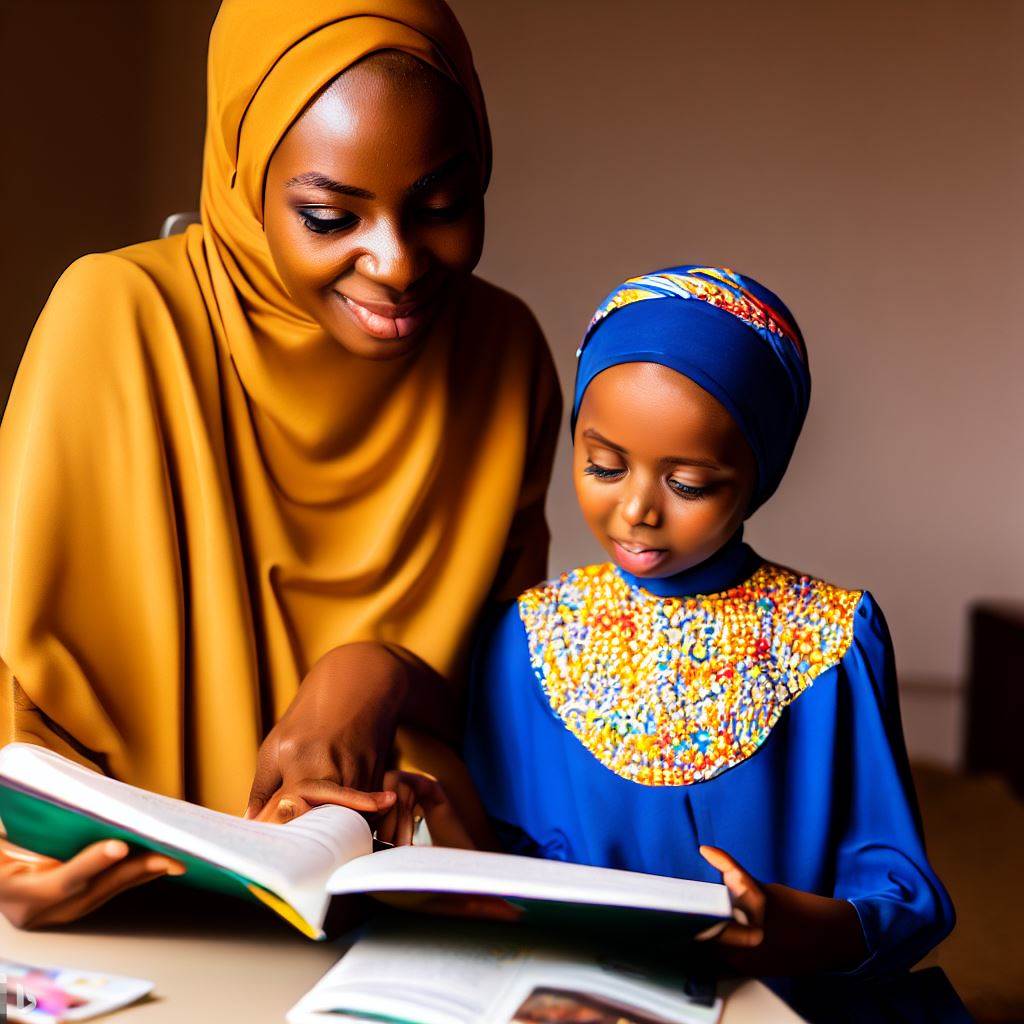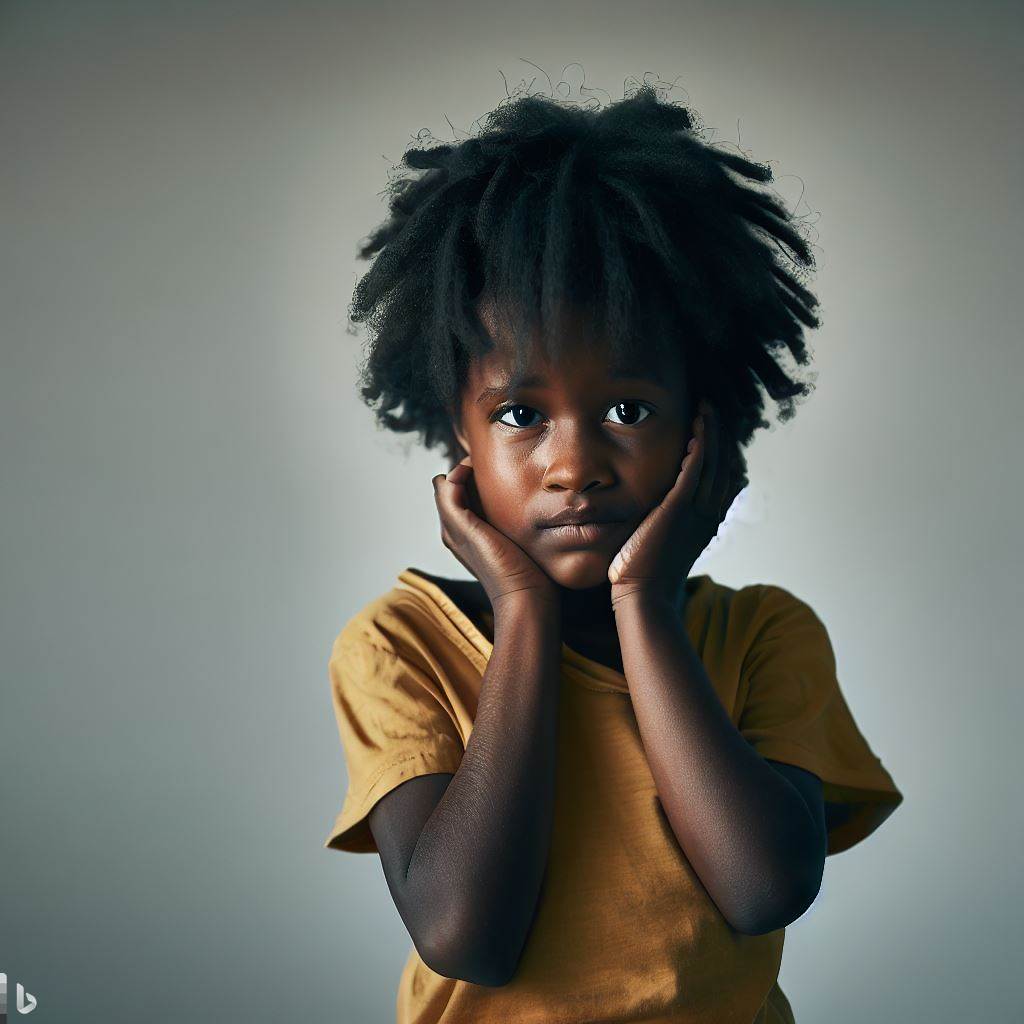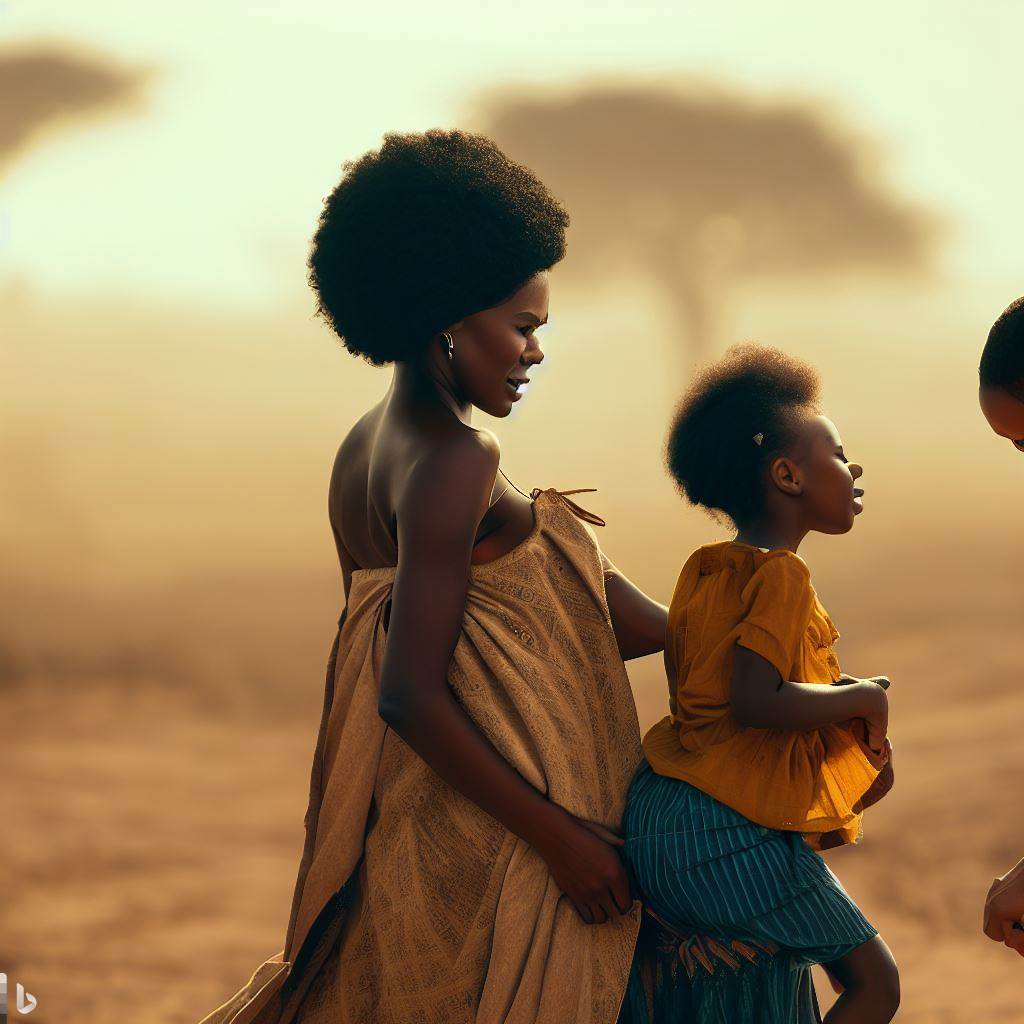Introduction
Gender bias in parenting refers to the unequal treatment of children based on their gender. It occurs when parents favor a particular gender over the other.
In Nigeria, gender bias in parenting is deeply ingrained in African traditional beliefs. This bias reflects in the way parents raise their children, especially in the allocation of chores, academic support, and opportunities.
Addressing the issue is crucial as it contributes to gender inequality, which affects both the individual and society. From a Nigerian perspective, gender bias in parenting perpetuates gender inequality and hampers development.
It is vital to address this issue to ensure that Nigerian children grow up free from gender biases and have equal opportunities.
The purpose of this blog post is to examine the ways gender bias in parenting manifests itself in Nigerian culture and suggest practical ways to address it.
It highlights the importance of equal treatment of children, irrespective of their gender, and promotes gender equality in Nigerian households.
By raising awareness of this issue, we can create a society that values gender equity and fosters a more inclusive and just environment.
Read: Parenting and Mental Health Issues in Nigerian Context
Understanding Gender Bias in Parenting
Explanation of gender bias in parenting
Gender bias in parenting refers to the stereotypes, expectations and prejudices that individuals have towards the roles of fathers and mothers in child-rearing practices.
This bias affects how parents raise their children and what they expect from them based on their gender identity.
Gender bias can manifest in different forms, including gendered roles, gendered expectations, and gendered assumptions.
Historical and cultural influences on gender roles in Nigeria
Nigeria’s traditional culture prioritizes gender roles, designating men as breadwinners and women as homemakers.
This cultural bias has persisted across generations, shaping perceptions of parenting responsibilities.
Additionally, the introduction of European colonialism in Nigeria further perpetuated gender bias by imposing Eurocentric patriarchal ideas on the people.
This led to the erasure of indigenous gender norms, which were replaced with western ideals.
Parenting Made Just for You
Get personalized Parenting Solutions tailored to your child’s needs. Transform your parenting journey with expert guidance in 1-3 days.
Get StartedStatistics and research on gender bias in parenting in Nigeria
Studies show that gender bias in parenting is prevalent in Nigeria. Fathers are generally expected to be the breadwinners, while mothers are expected to be the primary caregivers.
Consequently, many fathers often neglect their parental responsibilities, assuming that their role as breadwinners is enough.
Furthermore, there is a marked difference in the way male and female children are raised. Girls are socialized to be nurturing and submissive, while boys are taught to be assertive and dominant.
This socialization affects the interests, self-esteem and career choices of children.
Most importantly, gender bias in parenting has been a significant issue in Nigeria’s culture and society, affecting how children are raised and their perceptions of gender roles themselves.
Although change is slow, more awareness is needed to address this issue and promote gender-neutral parenting.
Parents must take the initiative to educate and sensitize themselves to correct the biases that they may have internalized, to raise children who are not limited by gender expectations.
Read: Teenage Pregnancy: A Silent Crisis for Nigerian Parents
The Effects of Gender Bias in Parenting
Gender bias in parenting has far-reaching effects on children, their development, gender equality in society, and negative impacts on both men and women.
Consequences for children and their development
- Girls are often socialized to prioritize domestic chores over education and career aspirations.
- Boys are taught to suppress their emotions and to be tough and independent.
- Gender bias can lead to favoritism towards certain children based on their gender, leading to resentment and low self-esteem in other children.
- Children may also learn harmful gender stereotypes and discrimination, perpetuating the cycle of bias in future generations.
Impact on gender equality in society
- Gender bias in parenting perpetuates gender inequality by reinforcing gender roles and stereotypes.
- It limits the potential of both male and female children, creating a society where men have more opportunities and women face glass ceilings.
- Gender bias in parenting also contributes to the pay gap, as women are more likely to prioritize family over work due to societal expectations.
- This can prevent women from reaching their full potential and contribute to the underrepresentation of women in leadership positions.
Negative effects on both men and women
- Gender bias in parenting can lead to toxic masculinity, which harms boys and men by enforcing a narrow definition of what it means to be a man.
- Men who do not conform to these rigid gender roles may face stigma and discrimination.
- Women who are subjected to these gender biases may face limited opportunities and discrimination in the workplace.
- Both men and women may also experience mental health issues such as depression and anxiety due to societal expectations placed on them.
Overall, gender bias in parenting has negative effects on children, gender equality in society, and both men and women.
Addressing gender bias in parenting is crucial for creating a more just and equal world for everyone. Parents must be aware of their biases and strive to treat their children equally, regardless of gender.
Educators and policymakers must also work towards fostering gender equality by promoting inclusive and diverse education and advocating for policies that support gender equality.
Only through these efforts can we create a world free from harmful gender bias.
Read: Parenting Amidst Insecurity: A Reality for Many in Nigeria
Unveil the Perfect Name that Tells Your Family's Story
Let us help you find a name that embodies your family's values, traditions, and dreams. Our personalized consultation weaves cultural insights to create a name that's uniquely yours.
Get Started
Challenging Gender Bias in Parenting
Gender bias in parenting is a pervasive issue around the world.
In Nigeria, like in many other cultures, traditional gender roles have been deeply ingrained in parenting practices for generations.
However, challenging these biases is critical for promoting gender equality and empowering women and girls.
Strategies for challenging gender bias in parenting
- Encourage gender-neutral parenting practices: Parents should avoid imposing gendered expectations on their children. Gender-neutral parenting practices – such as allowing children to choose their own clothes, toys, and activities – can help break down traditional gender norms and biases.
- Promote equal sharing of child-rearing responsibilities: Men often play a minimal role in child-rearing in many cultures, leaving it to women. Encouraging fathers to take on more responsibilities can help to challenge gender roles and biases.
- Challenge gender stereotypes: Parents should avoid making gendered assumptions about their children based on their gender. For example, not assuming that girls are less interested in science or sports.
- Teach children about gender equality: Parents can reinforce the importance of gender equality by teaching their children about it from a young age. This can help to break down gender expectations and promote gender equity.
Developing awareness and education for parents
- Provide education for parents about gender equality: Parents should be educated about the importance of gender equality and the negative impacts of gender bias. This can help to promote more inclusive parenting practices.
- Develop awareness campaigns on gender bias: Local organizations can start awareness campaigns to highlight the negative impacts of gender bias. These campaigns can educate the public and promote more inclusive parenting practices.
- Encourage positive media representation: The media plays a pivotal role in shaping the attitudes and biases of society. Encouraging positive representation of women and girls in the media can help to challenge gender biases.
Role of government and society in promoting gender equality
- Develop and enforce laws against gender discrimination: Governments need to develop and enforce laws against gender discrimination to protect women and girls.
These laws can help to promote gender equality in multiple spheres of society, including in parenting. - Create programs to address gender inequality: The government can promote gender equality by creating programs that focus on empowering women and girls, such as education and skills training programs.
- Encourage gender diversity in leadership: Promoting gender diversity in leadership positions can help to challenge gender inequalities in parenting and other aspects of society.
Therefore, challenging gender bias in parenting is crucial for promoting gender equality and empowering women and girls.
Strategies like encouraging gender-neutral parenting practices, promoting equal sharing of child-rearing responsibilities, and teaching children about gender equality can help to challenge gender biases in parenting.
Developing awareness campaigns and education for parents, in addition to increasing the role of governments and society, can also promote gender equality in parenting and beyond.
Read: Guide to Sustainable Living and Saving Money in Nigeria
Case Studies
Gender bias in parenting has been a persistent issue in many cultures, including Nigeria.
Historically, Nigerian culture has been patriarchal, where men hold the majority of power and control. These gender roles have been deeply ingrained in society and have extended to parenting.
However, there are now individuals and organizations working to address this issue.
Examples of individuals and organizations in Nigeria addressing gender bias in parenting
1. Kudirat Initiative for Democracy (KIND)
- KIND is a Nigerian organization that works to empower women and girls in various aspects of life.
- They have a program called “Parenting against Sexism” that educates parents about gender equality and challenges gender stereotypes in parenting.
- The program has been successful in changing attitudes towards gender roles and promoting equal opportunities for children.
2. Temi Dollface
- Temi Dollface is a Nigerian musician and artist who is an advocate for gender equality.
- In her music video “Pata Pata,” she challenges gender norms by portraying a role reversal where women are in positions of power and leadership.
- The video has been praised for challenging traditional gender roles and promoting gender equality.
Successes and Challenges in Addressing the Issue
Successes
- There has been an increase in awareness of gender bias in parenting in Nigeria.
- Organizations such as KIND and individuals such as Temi Doll face have been successful in promoting gender equality in parenting.
- There is a growing movement towards challenging traditional gender roles and promoting gender equality in parenting.
Challenges
- Traditional gender roles are deeply ingrained in Nigerian culture and are difficult to change.
- Many parents still hold traditional values and believe in strict gender roles for their children.
- There is a lack of government policies and programs that address gender bias in parenting.
Gender bias in parenting is a complex issue that requires a cultural shift in attitudes towards gender roles.
While there have been successes in promoting gender equality, there are still challenges that need to be addressed.
It is important for individuals, organizations, and governments to work together towards creating a society where gender equality is the norm in all aspects of life, including parenting.
You Might Also Like: Balancing Work and Parenting in Nigerian Society
Conclusion
Addressing gender bias in parenting is crucial in achieving gender equality in Nigeria. It requires the recognition of the harmful effects of gender stereotypes and the willingness to challenge them.
As individuals, we can challenge our own biases and encourage open conversations with our partners and families on this topic.
Society needs to promote gender equality through education and awareness campaigns on the importance of sharing parenting responsibilities equally.
By collectively challenging gender bias in parenting, we can foster a future where children grow up in a more equal society, where parenting roles are not determined based on gender.
Let us remain hopeful and keep pushing for change!




